Non-Exist-ENT
THE PAIN AND SORROW OF CONVENIENCE: OIL AND CORN AS AVATARS OF ATOMIC-AGE SUFFERING IN TWIN PEAKS7/6/2017 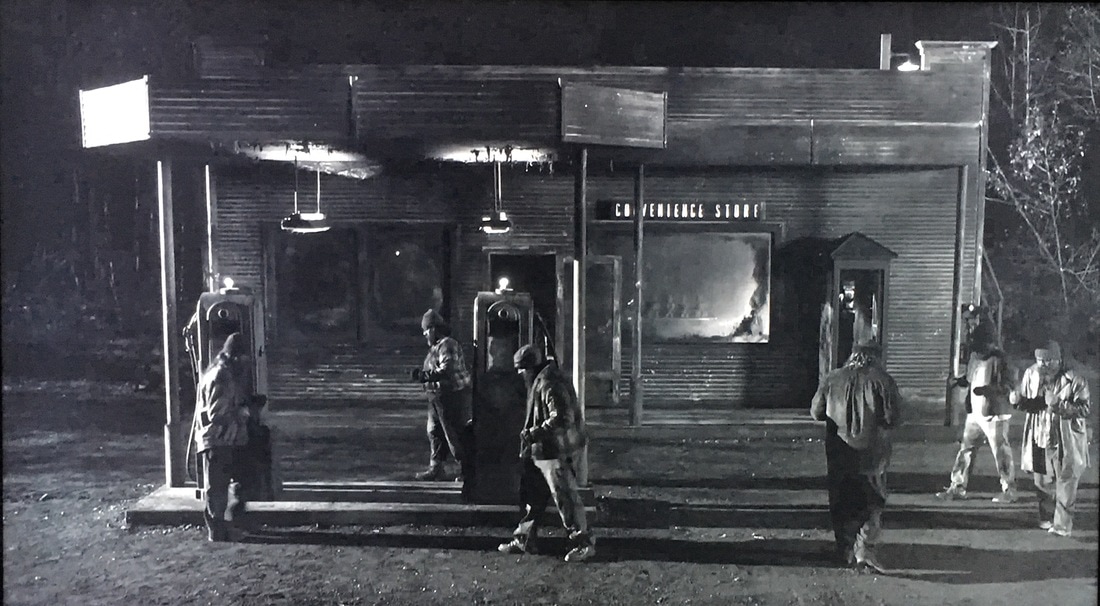 While everybody's dazzled by the mushroom cloud, a more insidious form of evil is going unnoticed. Ever wonder why the people from another place live above a convenience store? Or why they eat creamed corn? Or smell like engine oil? Or vomit a mixture of corn and oil when they're about to give up the ghost? If so, this one's going to blow your mind. The critical fallout of Part Eight has been largely about the evils unleashed by the atomic bomb. On a surface reading, the bomb itself perpetrated terrible evils against humanity. On an esoteric reading (think The Secret History of Twin Peaks), the bomb was engineered by Aleister Crowley and his cabal of evil sex-magicians with the hope of literally opening a portal to hell. On a figurative reading, nuclear fission is a terrific metaphor for "the evil that people do"--those myriad social, psychological, and spiritual ills that are driven by the mechanics of bombardment: something unified gets hit hard by an outside force it cannot withstand and splinters into parts, generating exponentially multiplying destructive energy in the process. What happens to Leland, Laura, and Cooper when they collide with BOB is a kind of fission--a microcosm of what happened at White Sands. But if the literal and metaphorical horrors of nuclear fission are the most obvious forms of evil under scrutiny in Part Eight, they are not the only ones, nor are they the ones that are explored most extensively in the mythology of Twin Peaks to date. Part Eight is also, if much less obviously so, an exploration of another atomic-age evil, namely the incessant drive for convenience that set loose the behemoths of the petroleum industry and industrial animal agriculture, leading to our collective dependence on two of the most destructive commodities in the history of humankind: oil and corn. The first step in illuminating this insight is to highlight the pride of place given to the symbols of convenience, oil, and corn in the existing Twin Peaks mythology of evil. Though the recurrence of these three symbols as harbingers of evil may not leap to mind as readily as more glamorous baddies like BOB, the white horse of death, and now "Mother" or "Experiment," most Twin Peaks fans will have an implicit grasp of their importance to the narrative. Have you ever wondered, for instance, why the people from another place live above a convenience store? Or why they smell like engine oil? Or why the pain and sorrow they consume to survive are symbolized by creamed corn? Or why they vomit a mixture of creamed corn and engine oil when they're about to give up the ghost? Or why some of them--especially this new crop of "woodsmen"--appear as if they have just bathed in fossil fuels? If these questions have occurred to you, you're probably already at least implicitly familiar with convenience, corn, and oil functioning together as symbols in a broader mythology of evil in Twin Peaks. But notice, too, that these three elements are not only individually present as symbols of evil, but they are recurrently bundled together as a package of elements that characterize the most basic existential necessities of evil characters: these characters live above a convenience store, they eat creamed corn, they look and smell like engine oil (as if, terrifyingly, their bodily exertions exude petroleum--a substance that is quite literally eons of death exposed to extreme pressure and released through destruction of the Earth). In the Twin Peaks mythology of evil, then, convenience, corn, and oil aren't just incidental instruments of evil-doing (like weapons, hard drugs, malevolent plans, or even cursed rings), but are rather essential existential elements of evil-being: convenience shelters evil, corn nourishes it, and oil is its lifeblood and bio-power. These are the things that give evil place, feed it, and keep it going. The central roles of convenience, corn, and oil in the Twin Peaks mythology of evil predate The Return, but they are all back with a vengeance in the new series. We get early glimpses of their continuing importance in the oily woodsman haunting Buckhorn Jail (Part Two) and Dougie's and Mr. C.'s corn-and-oil-ridden vomit (Part Three), but the latest two episodes have put these elements and their essential connectedness at center stage. At a pivotal moment in Part Seven (17:26), for instance, just before we see Gordon Cole in repose whistling to himself in front of a giant poster of a mushroom cloud foreshadowing what is to come in Part Eight, the camera lingers on a bizarre framed print on the side wall of Cole's office that depicts an ear of corn superimposed over what appears to be the shaft of a mushroom cloud (see below). I can practically hear Cole's inimitable shrill tenor instructing us to keep our eyes on the prize: "NOW WHEN YOU SEE THAT MUSHROOM CLOUD, YOU'RE GOING TO BE DAZZLED! YOU'LL BE TEMPTED TO LOSE SIGHT OF THE CORN. DON'T LOSE SIGHT OF THE CORN! THE CORN COMES FIRST!" Less cryptically, the message might be to recognize that gigantic, glaring, world-historical forces of evil like atomic bombs (and the cabals of elite scientists or would-be sex-magicians who conjure them) don't just come into being without more pedestrian, less obvious forms of evil hidden the woodwork, laying the groundwork, feeding the hunger for ever more spectacular forms of domination, exploitation, and destruction. Without scarcity and lack at the mundane level of simple human finitude--without the desperate but too often unquenchable needs that vulnerable beings have for safe shelter, ample food, and the means for securing bodily integrity and healing--there would be no grandiose plans for world domination. In Part Eight, this foreshadowing comes to full fruition in what is surely the most accessible and stylized presentation of the underlying significance of convenience, oil, and corn for the Twin Peaks' mythology of evil that we have yet seen in any of the three seasons. At 21:54, exactly five full minutes after the Trinity explosion at 16:53, and after a harrowing journey into the mushroom cloud and through the sublime rip in the fabric of space-time opened thereby, where do we find that this long-sought portal into hell leads? Where do we end up after all this world-historical Sturm und Drang? At a f*cking convenience store. And what are the two (and only two) things visibly available for consumption at this place beyond the atomic portal? You guessed it. Oil conveniently refined into gasoline for automobiles and corn conveniently canned for stacking in suburban bomb-shelters. And who is all this for? A bunch of aimless, slovenly, desperate busy-body men milling around trying to keep their sad, waning fires lit. The anti-climax of it all actually had me tempted to laugh at the absurdity of this destination-nowhere. All this work to open up the hell-gate and control the world, and all we manage to do is invite some other pitiable group of lost, lonely souls to act out their version of our frenetic, fragile, graspy melodrama in service of preserving the illusion of material satisfaction and fulfillment. I'm glad I didn't laugh, though, because less than a minute after the above close-up of a convenience store and its two key commodities, the store itself opens up into a yawning black abyss (24:35) and just a few seconds after that, we're treated to the horror of Experiment disgorging a plague of frog-locusts and the voracious hunger to instrumentalize and destroy life that is BOB (24:43). Here's the upshot: a convenience store stocking oil and corn is essentially the go-between or the connective tissue between the Trinity Explosion and the primordial opening of the hell mouth. How's that for impressive product placement? It's one thing to realize that convenience, corn, and oil are at center stage in Twin Peaks' mythology of evil, and another thing entirely to understand why they belong there. Upon reflection, it's pretty clear that any perceptive account of the unique forms of pain, sorrow, and self-inflicted alienation that we face in the wake of the atomic age will need to take convenience, corn, and oil into account. Let's start with convenience. As print advertisements and television from the 1950s suggest, life in the atomic age is synonymous with easier life through technology. Housework is barely work anymore, what with vacuums, dishwashers, and washing machines. Reading and museums and the arts for entertainment? Who needs them, with the exciting advent of radio and television entertainment in your very own home? And who needs weeks or months on a boat when travel on a jet aeroplane is such a snap! And no need for multiple visits to the butcher, baker, and candlestick maker (much less to labor on those things yourself), when one-stop shopping at a supermarket with shelves upon shelves full of meaty chicken breasts under cellophane and eggs in pristine cartons is just a fifteen minute drive from your shiny new subdivision away from the noise and crime of the inner city! Can you guess which commodities we have to thank for all these wonderful new conveniences? We are grateful to unfathomable amounts of oil to make gas to drive our cars and to make electricity to run our appliances and to make fertilizer and pesticide to grow our corn. Thanks to oil, we no longer need to grow corn the old fashioned way like the indigenous people from whom we stole it did, taking the time and effort to husband the soil and let the land be fertile for the many other things it nourishes. No, we can let the soil burn and feed the plant with fertilizer, and we can patent the fertilizer so that no one else can use our seeds without paying, and we can talk the government into subsidizing our growing of vast amounts of corn on practically every field in existence at a financial loss so that we can drive subsistence farmers across the world into famine or suicide and produce artificially cheap meat, eggs, and dairy by moving all the animals off of pasture into cages where we feed them corn and produce them by the tens of billions in conditions that it is kind to call a living hell and then flush their oceans of blood and excrement into our water tables, lakes, rivers, streams and oceans. Our reward for all of this will be ever increasing convenience with maybe a few unintended consequences like the hollowing out of rural America, infertile soil, water shortages, dying oceans, biodiversity loss, environmental degradation, global warming, severe weather, cancer, strokes, diabetes, and maybe a pandemic of bird flu. Oh, and perhaps a few wars to keep the oil flowing so we can keep the corn growing and our stomachs full of the artificially cheap pain and sorrow of others--oil converted to corn, corn converted through suffering into dead flesh, and dead flesh into energy for the pursuit and acquisition of still more power and comfort. Garmonbozia, anyone? David Lynch has never shied away from showing us the evil, bleeding underbelly of the voracious need to consume and instrumentalize that lies beneath the illusion of suburban convenience and comfort. Not in Blue Velvet, not in "Eat My Fear," and certainly not in Twin Peaks, where--for those with the eyes to see--the terrifying people from another place, the dark magicians seeking total power, those living on the pain, suffering, and humiliation of others--turn out to be us. Convenience has a way of sheltering evil in plain sight, of turning the degradation of people, animals, and the Earth into instruments of perverse power and pleasure. Convenience has a way of robbing us of meaningful labors and difficult but important relationships to people and places from which we are estranged because of the safe distance we put between our attitudes and actions and their consequences for others. And convenience has a way of putting us to sleep, of deflating us, of duping us into living lives that are filled to the brim with that gaudy emptiness that always digests into despair. Let us not allow the mushroom cloud to divert our gaze from the corn and the oil.
28 Comments
Kurt Doonesbury
7/7/2017 01:27:10 am
Some other theories: https://tellingstories.blog/2017/07/06/twin-peaks-keep-your-eye-on-the-doughnut/
Reply
Jason
7/7/2017 09:26:02 am
Fantastic article...thanks for your insight!
Reply
Doreen
7/7/2017 04:08:38 pm
I don't watch this show . My grown daughter was a fan of the original and is enjoying this one as well. She told me of this episode and also sent me this article. I am a student of history and I have got to say that the last three sentences of this article couldn't ring more true. It's not that some of my generation don't want to learn new things such as how to do banking electronically; it may be that actually going to the bank keeps us engaged and connected. I enjoyed this thoughtful article ,
Reply
Laura Turdean
7/7/2017 01:45:22 am
What a great article! Deep and reflective. Thank you for sharing your ideas with the rest of us!
Reply
Christian Hartleben
7/7/2017 07:21:54 am
I think this upcoming book may indicate if Lynch thinks in the manner you propose. Personally, I do not recognize Lynch's thought processes as you describe them. https://artsbeat.blogs.nytimes.com/2015/10/17/david-lynch-to-tell-his-own-story-in-book-but-with-a-twist/
Reply
Tom St
7/7/2017 02:16:36 pm
That book came out 2 years ago...
Reply
Lupe Mortenson
7/7/2017 07:40:24 am
Thank you so much for the education. While I do understand some of the symbolism in David Lynch's work; I was having a hard time with the corn, and I could not understand the burning oil every time 'BOB' showed up. Your words are so true. I was born in 1955 so I had 'some' idea, but was oblivious to the rest.
Reply
Gregory Stanton
7/7/2017 09:58:30 am
Referring to the plot conventions of a television show as "mythology" is downright bizarre. It's also a bit fawning.
Reply
Thanks for the criticism, Gregory! Perhaps we come from different communities of interpretation? In the media criticism, aesthetics, and philosophy of fiction communities that I read around in, it's actually pretty common to refer to the origin stories and recurring themes that hold up major narrative threads in any works of fiction (novels, films, television shows, etc.) as "mythology" (from the Greek μῦθος + λόγος--the animating logic of a narrative or tale). I just checked, and common dictionaries refer to literary/aesthetic uses of the term "mythology" in just the way I've used it in this essay, so I guess it's not just nerdy eggheads like me and my nerdy egghead friends. https://en.oxforddictionaries.com/definition/mythos
Reply
Chad Olmsted
7/7/2017 12:18:30 pm
Mythology is all around us. Joseph Campbell talked at great lengths about the mythological themes in Star Wars for example. I agree 100% that there mythological themes in this series. It may be displayed through your television but it is certainly not your typical show.
Philip s dick
7/7/2017 01:06:21 pm
I see you are near grand Rapids, I am near cadillac and grew up in south haven. Your analysis is spot on. Wookiefoot has been talking about these issues for years. Check out their songs "bastards of Babylon", "don't listen", "junk food", and "backbone" I think you will be pleased
Ike
7/10/2017 10:19:04 pm
Referring to a TV show's ongoing plots as "mythology" is a relatively new use of that term and probably originated with "The X-Files" in the 1990s, but it is now widely used and accepted.
Reply
Matt Miller
2/2/2018 07:10:28 pm
Not new. Trekkies have been doing it for decades.
Matt P
7/7/2017 12:28:20 pm
Minor quibble here, but does oil really belong in list of things that make convenient entertainment great? I know radio and tv are major factors here, but drawing the line from oil to electricity to power that stuff is a bit sketchy to me - has petroleum every been a major source of electric power in the US?
Reply
Thanks for the comment, Matt P. Yes, absolutely, the burning of fossil fuels is one of three major sources of electricity production: fossil, hydro, and nuclear. I'm admittedly using the term "oil" here to mean something more like "fossil fuels, broadly speaking", and coal is a fossil fuel, but not petroleum, obviously. But oil is definitely one of the keys to the industrial agricultural revolution, so I think I can still say most of what I want to say in the article. Many thanks for the critical feedback!
Reply
I'd also add that PLASTICS -- one of the principal tools of convenience in our age, from cellophane wrap on up to, well, whole cars and such built of plastic (and don't get me started on 3D printers) -- PLASTICS are basically forms of remanufactured and repurposed petroleum. (More recently, new recyclable packaging is being offered -- made of CORN.)
Nathaniel Ketcham
7/7/2017 04:37:06 pm
Wow. Though I am unsure if this interpretation represents the intentions of Lynch or Frost (or if that even matters), this is still the strongest, most rigorous, well argued analysis of any aspect of Part 8 that I've read since the episode premiered.
Reply
Wow, Nathaniel! Thanks for taking the time to make such a kind and generous comment. I didn't see this until now, several days after the fact, and it really made my day! We should set up a Michigan Twin Peaks Meet-Up sometime and rally the Mitten state for some Peaksy fun! I so appreciate your generosity! Thanks for reading!
Reply
Gwenn
7/8/2017 01:26:49 pm
Fantastic article and insight..i just want to add one thing, amd forgive me if it has already been made in the comments or implicit in the article. But not only is corn convenient through tje pesticides in the soil but corn is also nowadays symbolic.of GMOs.yet another manmade manipulation and degradation of our environment.
Reply
7/8/2017 03:58:19 pm
This is a well written and insightful argument of the trinity fuels of evil: convenience, oil and corn. I understood the first 2 readily but the corn element is what I learned about here. Thanks for writing
Reply
Eric Rawlins
7/9/2017 04:24:13 pm
What a great, insightful, eye-opening read; it feels a little too literal and mundane (carping against the evils of modernity) for my (admittedly meager) understanding of the Lynch oeuvre—I always thought his thematic concerns were less earthly and more existential—but, of course, convenience has had a huge impact on humanity's struggles with the meaning of life (and acts as a double-edged sword: the easy life gives us more time to contemplate the meaning of life, but distracts us from the darker questions with glittering prizes), so it's not an implausible interpretation.
Reply
7/13/2017 10:31:40 pm
What a treat to read such thoughtful comments!
Reply
Naye
7/15/2017 05:32:13 am
Fantastic essay. This put into context things I as a European hasn't intuitively added together. It's a beautifully crafted, highly convincing piece that finally made a lot of things click for me. And now I won't ever be able to look at popcorn the same...
Reply
Matt C
9/29/2017 12:01:06 pm
To whoever wrote this article: this is literally one of the best and most insightful things I've ever read. Twin Peaks has been my favorite tv show since I was a junior high student traumatized by BOB climbing over the couch.
Reply
Mr. Roque
9/29/2017 04:52:04 pm
Thanks so much, Matt, for these really kind words of appreciation and encouragement! I'm so glad you found your way to it! And I'm looking forward to hearing more about your impressions of it when you get around to sharing them. Also, feel free to read and comment on some of the other essays on the site--would love to get your input on those too!
Reply
Jake Wilson
3/11/2021 02:30:49 am
With Matt's encouragement, here are a couple of statements from Lynch that have some bearing on this analysis. First, from Room to Dream:
Reply
Mr. Roque
3/13/2021 12:20:21 pm
Thanks so much for adding these in here, Jake! If I ever revise this piece for a longer format (which I have considered occasionally), I will surely fold them in!
Reply
Chris
8/31/2023 01:08:33 pm
I appreciate much of the insight in the article and it is very helpful to me describing these core symbols in the show. Very well done.
Reply
Leave a Reply. |
Mr. RoqueMonitoring the situation from a well-designed chair somewhere in Grand Rapids, MI Archives
August 2021
Categories |
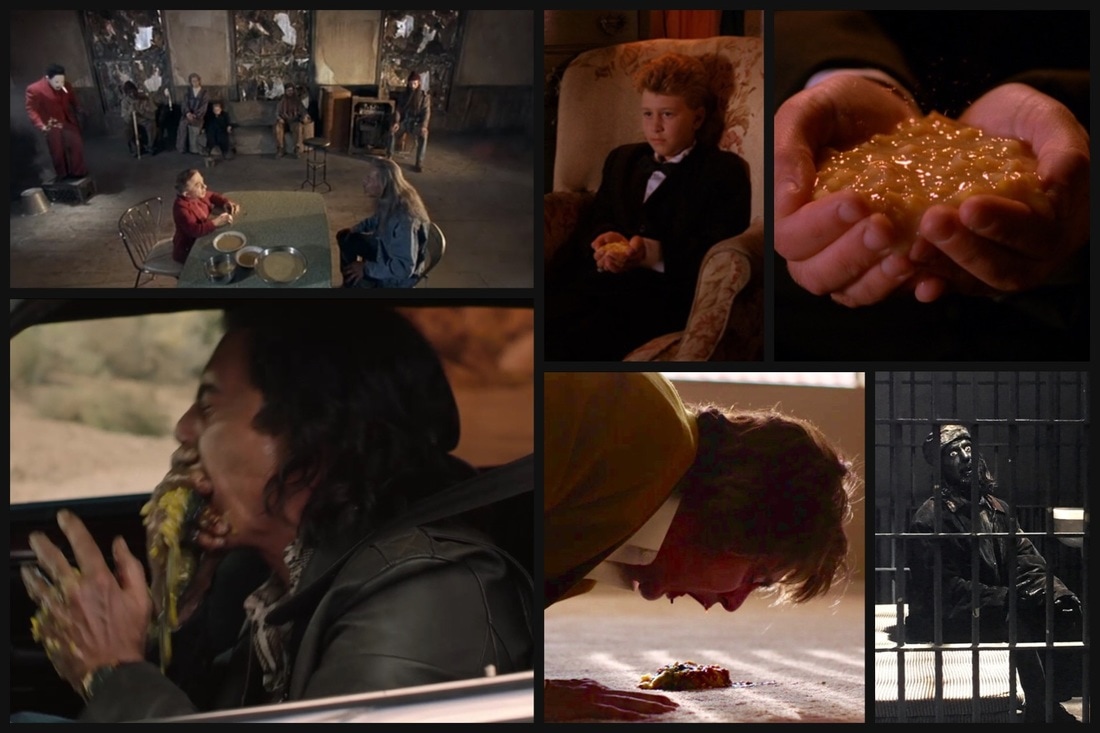
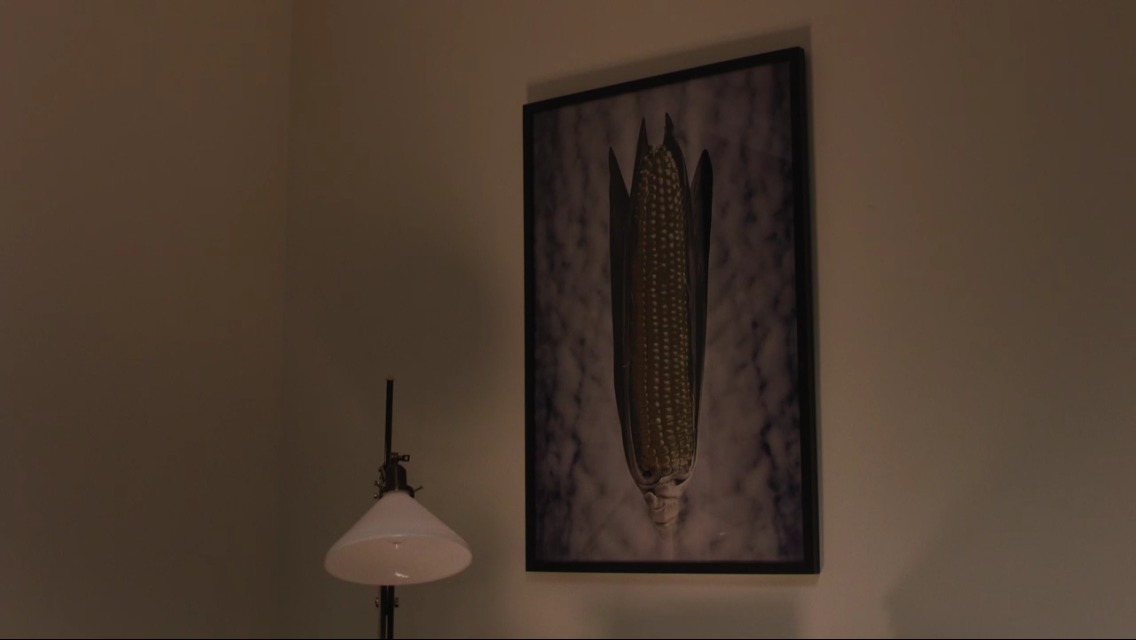
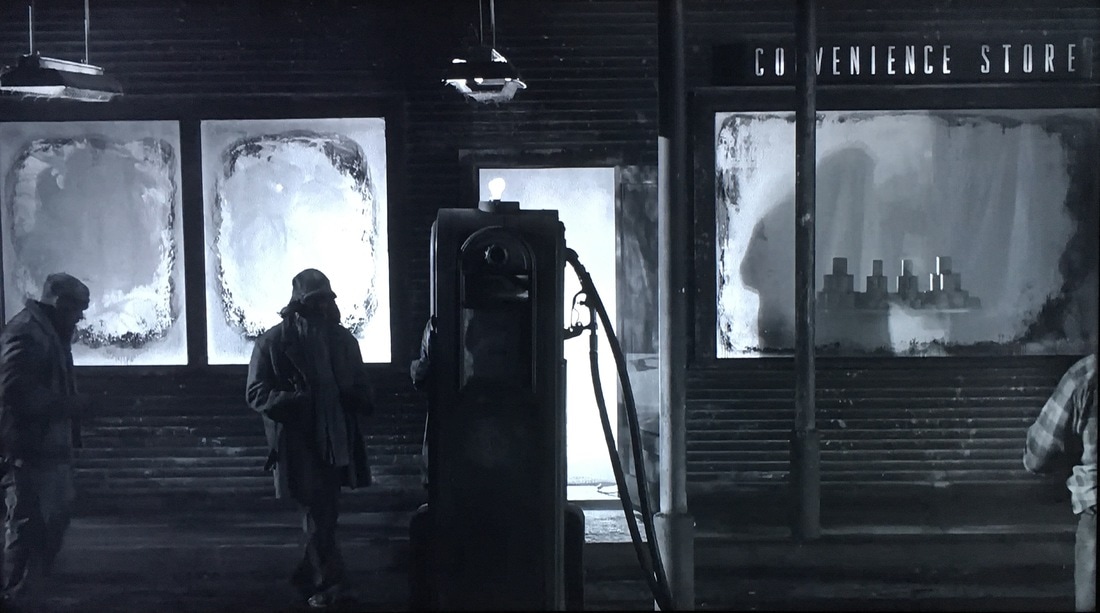
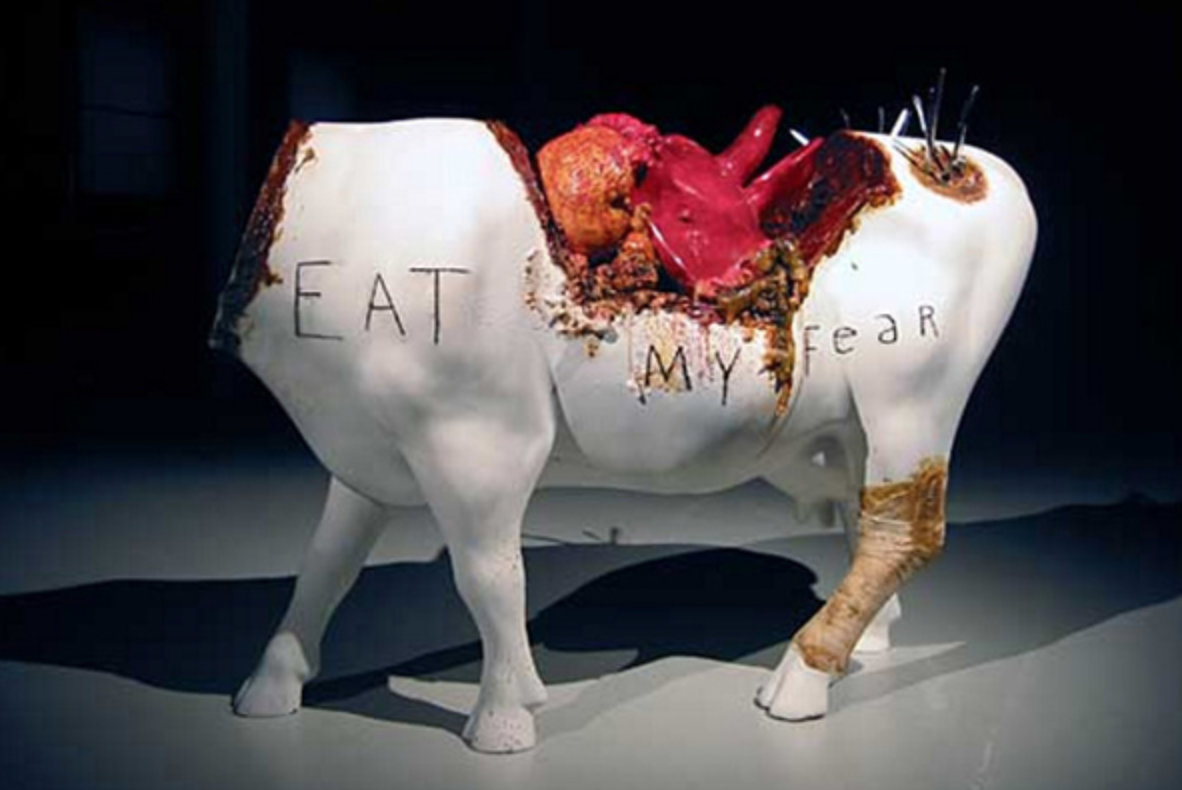
 RSS Feed
RSS Feed
